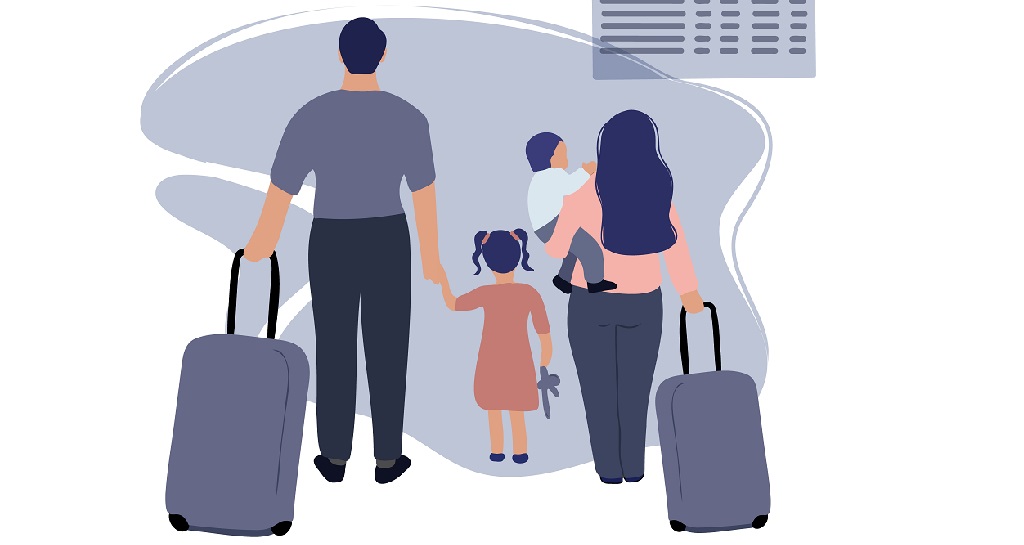ASYLUM & OTHER RELIEF
MY PRACTICE
U.S. ASSISTANCE AND AID
I assist immigrants who face challenges in their country of origin and have come to the U.S. for help. In assessing the best alternative for your immigration situation, one option is immigration relief based on humanitarian law. Often people need to quickly find a path forward, but I will first take the time to understand your particular circumstances and needs and tailor a plan to suit you.
TYPES OF SERVICES IN DETAIL

HOW I HELP
I keep updated on political news throughout the world and with regard to the U.S. response to humanitarian crises. With respect to my clients, I try to find the best relief available for them and give them the best possible outcome. I help those needing safety or assistance due to calamities, oppression, urgent medical needs, or other situations in their country of origin.
1. DACA renewal:
DACA stands for “Deferred Action for Childhood Arrivals.” It was established to provide protection from deportation for children who were brought into the U.S. without the appropriate visa. These young individuals were not considered to have the intent required to evade U.S. immigration laws. However, although the USCIS is accepting applications for DACA, they are currently not processing these applications. Renewals, on the other hand, are still being processed. If you currently have DACA, I can assist you with your DACA renewal.
2. Violence Against Women Act (VAWA):
If a non-citizen is or has been the abused spouse, parent, or child of a U.S. citizen or permanent resident, they may be eligible to file a VAWA petition. I will review the specifics of your case and assess whether the experiences you went through qualify as “abuse” according to the VAWA guidelines. If it can be established that abuse has occurred, an individual may be able to self-petition to obtain their LPR status, rather than relying on their abuser.
3. Asylum:
Individuals who have faced persecution in their country of origin or would face persecution if they were compelled to return are granted refuge by the United States government. Please refer to my Point of View page for a comprehensive overview of the asylum process.
The persecution must be based on one or more of the following factors:
- Race
- Religion
- Nationality
- Membership in a particular social group
- Political opinion
I have spent many years assisting clients from various parts of the world in building asylum claims. It is crucial for individuals with an asylum claim to consult with an experienced lawyer before presenting their case to the Asylum Office or in immigration court.
4. Humanitarian Parole
Humanitarian Parole pertains to the circumstances in which individuals from countries experiencing a compelling emergency are granted entry to the U.S., even if they would otherwise be considered inadmissible. Individuals may apply for Humanitarian Parole if they are facing an urgent situation or if their presence in the U.S. would provide substantial public benefit.
5. Temporary Protected Status (TPS)
USCIS designates specific foreign countries where conditions temporarily prevent nationals from safely returning. In such circumstances, when the political or social climate in their country poses a threat to their safety, USCIS grants Temporary Protected Status (TPS) to individuals currently residing in the U.S. They are allowed to live and work in the U.S. until it becomes safe for them to return to their country. The current countries eligible for TPS status include Afghanistan, Burma (Myanmar), Cameroon, Honduras, Haiti, Nepal, El Salvador, Nicaragua, Somalia, Sudan, South Sudan, Syria, Ukraine, Venezuela, and Yemen.
Our Contact
Phone
+1 (408) 877 6705
Address
1885, The Alameda, Suite 100E, San Jose, CA 95126, USA
Brochure
Lorem ipsum dolor sit amet, consectetur adipiscing elit. Ut elit tellus, luctus nec ullamcorper mattis, pulvinar dapibus leo.
FAQ's
You must submit an application for asylum within a year of your first arrival in the country. If you are in removal proceedings, you submit your application and supporting documentation to the EOIR, and if you are not in proceedings, you file your asylum application with the USCIS. Your spouse and children may be listed on your application (when they are referred to as “derivatives”, but with children, only if they are under 21 and unmarried). You should visit an immigration lawyer to assess the strength of your asylum claim first, however, as this area of law is complex. I have been working the build asylum cases internationally since 1999. Please see my Point of View page for a more in-depth dive into applying for asylum.
Asylum entitles you to an Employment Authorization Document (EAD), which can be applied for 150 days after your filing date with USCIS and obtained 180 days after this filing date for your I-589. Certain things may stop this “clock” from ticking, such as if you have applied for asylum in one jurisdiction and then change courts; the asylum clock my stop until the case is in the new court and then begin again. If a case was applied for and the case was dismissed from court, a person may no longer be in removal proceedings, but they may also lose their entitlement to their EAD, because they no longer have an underlying asylum application.
Processing times vary for the different types of relief and due to other forces (ie. COVID-19). To check the processing times for certain applications, click here: https://egov.uscis.gov/processing-times/.
When you have resided for one year in the United States after your asylum case has been approved, you are eligible to apply for a green card.
ASK FOR A CONSULTATION NOW!
Let me help you build a strong case for your Immigration Law related issues. Take the first step toward peace by asking for a consultation. Send me an e-mail or call my office or schedule a convenient time – I charge a small fee for a one-hour consultation

